COVID-19: Kampala's new face under lockdown
The curfew starts at 7pm and ends at 6.30 am and during this time movements along the roads were banned. Everyone is supposed to keep at home.
HEALTH VIRUS
KAMPALA - In order to implement President Yoweri Museveni's directive on COVID-19, traders in Nakasero market sleep on duty and stay in the market until the lapse of the 14 day period.
When New Vision visited the market at night, many vendors mainly women were seen sleeping beside their fruits and fresh vegetables.
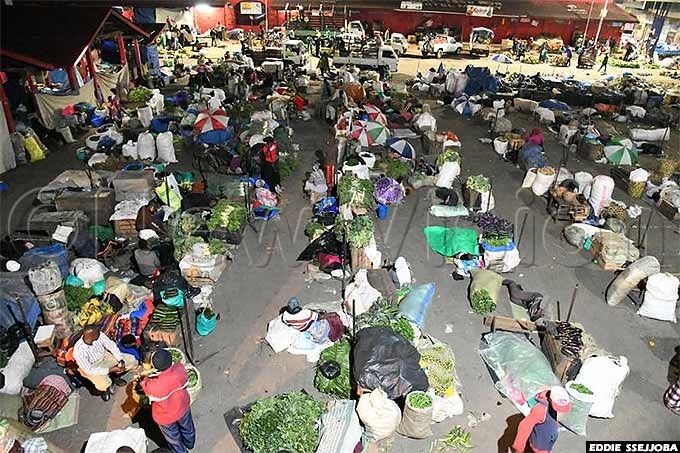
"We have now turned into husbands and we are the breadwinners at home. Our men are at home sleeping with the children," a female vendor remarked.
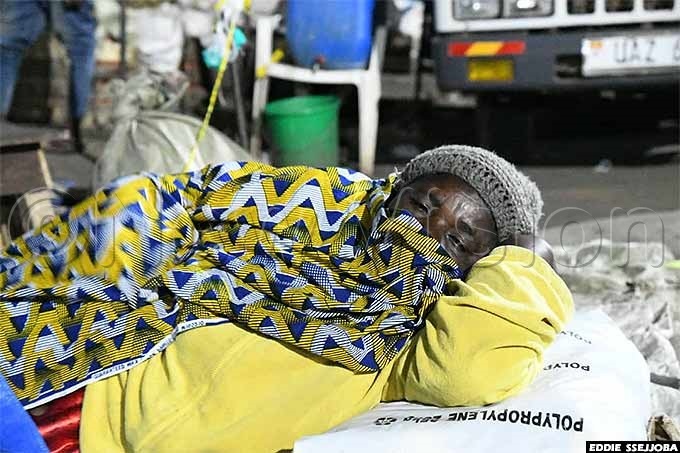
She said because of the biting poverty following the country's shutdown, many women had sacrificed to bail out their families by offering to work and sleep under hard conditions. She said her husband cannot complain since he is unable to fulfil home demands.
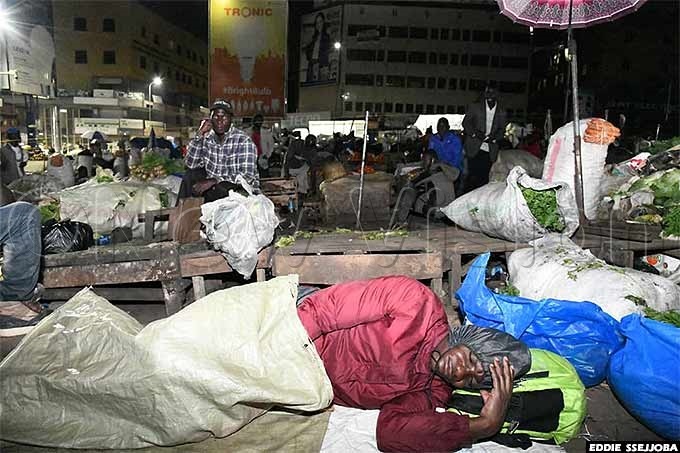
"Whatever happens to me is my business, he is at home and I have to substitute his roles," she remarked.
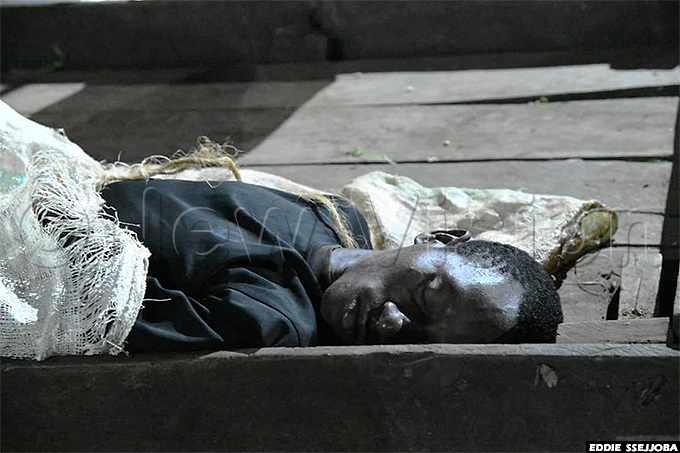
Several vendors were seen covering themselves with old sisal sacks and 'buveeras' while others just slept off without anything to cover themselves.
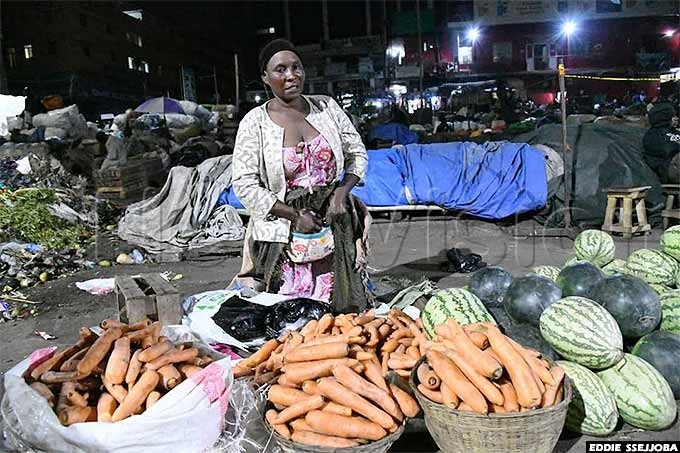
Others, however, used the night to arrange their stalls, purchase from night truck off loaders and chat with friends.
One of the market leaders said they monitor the traders to ensure they don't return home until the 14 day period as directed by the President. It was intended to avoid carrying the virus to their people at home in case they get infected in the market.
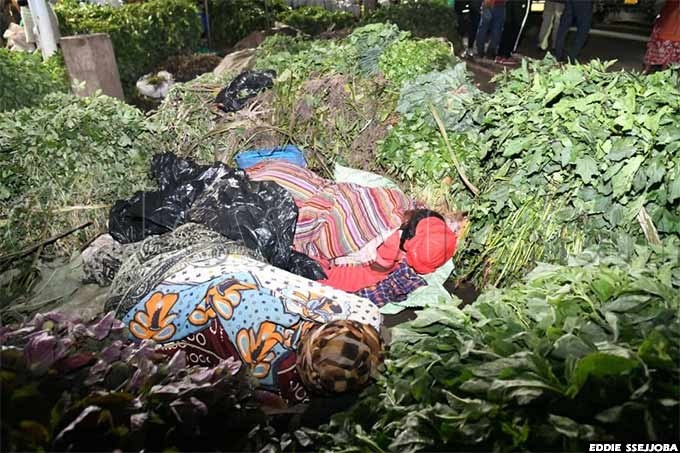
They are also constantly reminded to keep social distancing, wash their hands with soap regularly and follow other measures.
Police, Army conduct night patrols
The police and the military have started conducting night joint patrols in various places around the city targeted at ensuring people are abiding with President Yoweri Museveni's measures on fighting the Coronavirus pandemic and observing the night curfew.
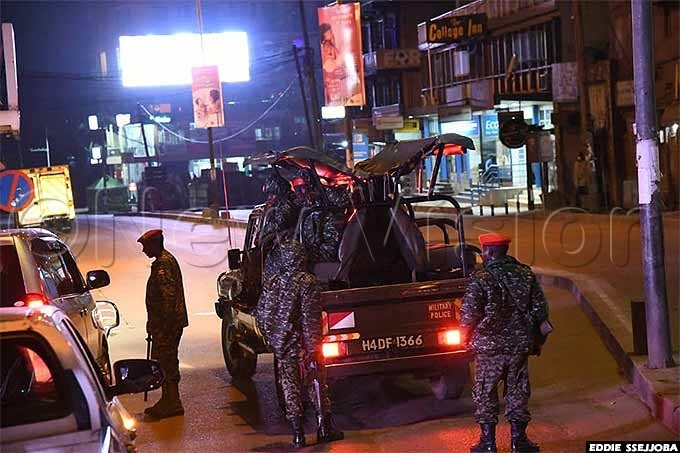
The curfew starts at 7pm and ends at 6.30 am and during this time movements along the roads were banned. Everyone is supposed to keep at home.
However, during the night patrols, a number of people were rounded up in Mbuya and surrounding areas. Many were security guards who pleaded that they left workstations late and were excused.
A man shed tears pleading that he tried to walk but was caught by time. Another suggested to be given five strokes and be left to leave.
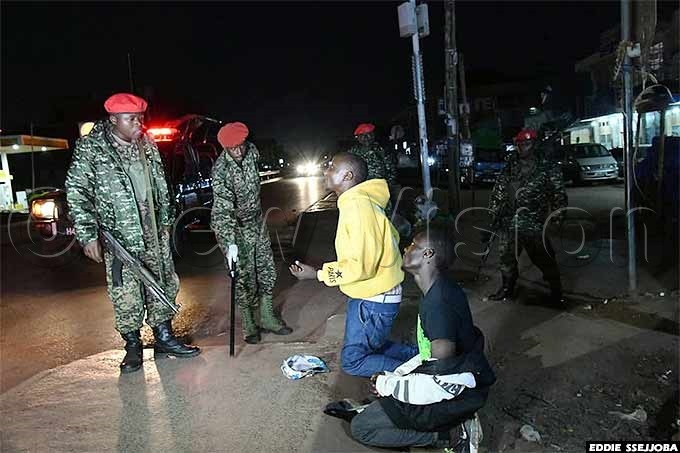
A woman who lied that she was moving with her husband to hospital fell short of words when she failed to mention both his names and only mentioned William. The man did not have an ID.
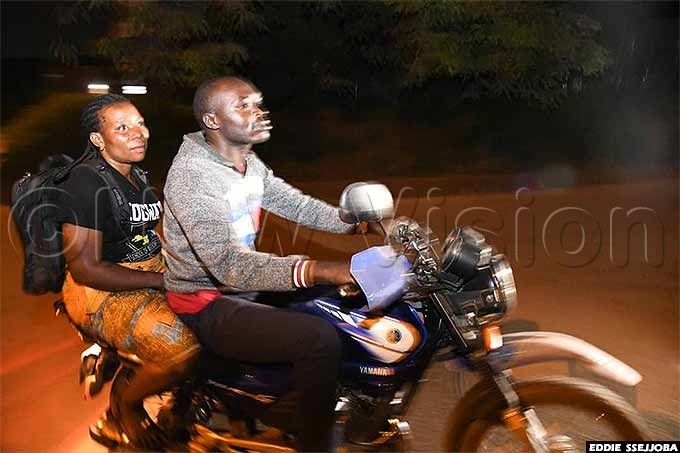
The director of Crime Intelligence, Brig. Chris Damulira Sserunjogi oversaw the screening at Mbuya police post.
Other areas where people were rounded up walking during curfew hours included, Bwaise and Wandegeya.
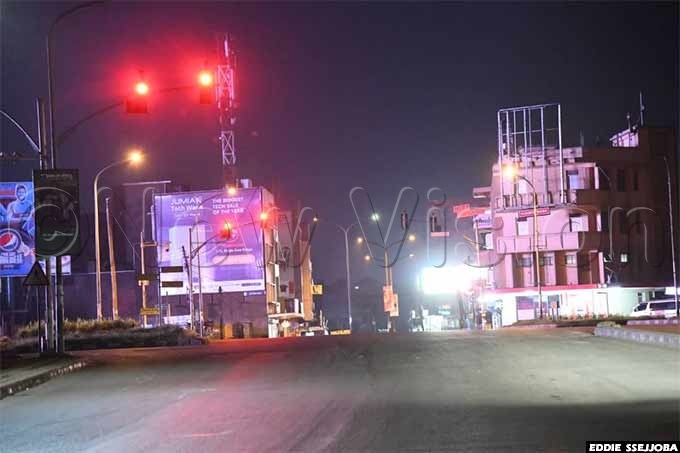
At Bwaise, some men who were drunk tried to explain themselves but were arrested. At Kalerwe, two young men tried to plead with the army that they were going to Mulago Hospital but did not have identity cards which raised suspicion that they wanted to steal.
Another man was nabbed at Wandegeya and failed to explain his presence.
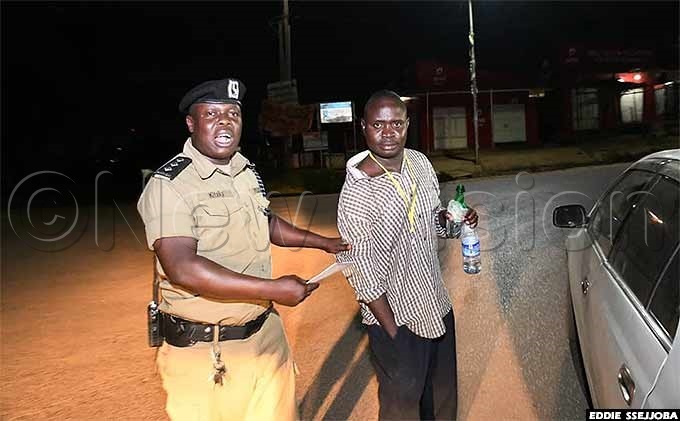
However, at Nankulabye and Makerere Kikoni, vendors and shopkeepers continued operating even beyond 8 pm.
Police, army verify stickers and travel documents for motorists
The police, working together with the army have started verifying documents and stickers used by private motorists and other vehicles to ascertain whether they are genuinely issued.
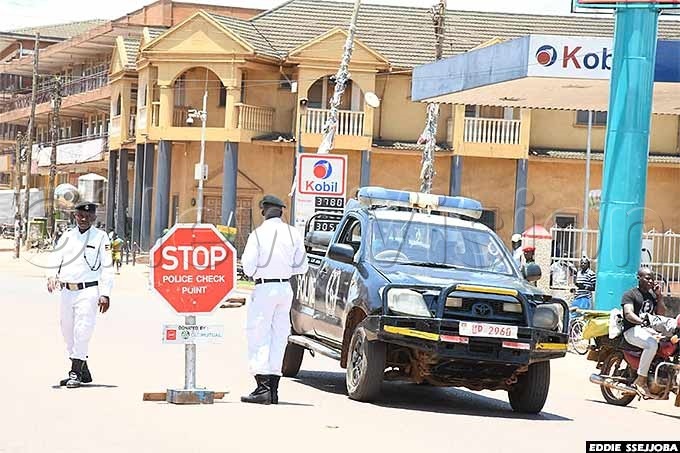
This follows President Yoweri Museveni's COVID-19 measures that banned the movement of public and private vehicles unless under emergency or with permission to conduct an emergency.
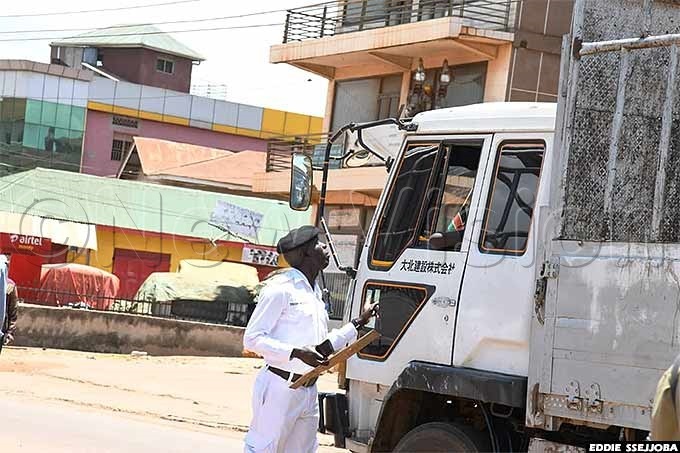
Vehicles allowed included ambulances and other vehicles carrying sick people, trucks carrying essential goods and foodstuffs, vehicles transporting working in the category of essential services.
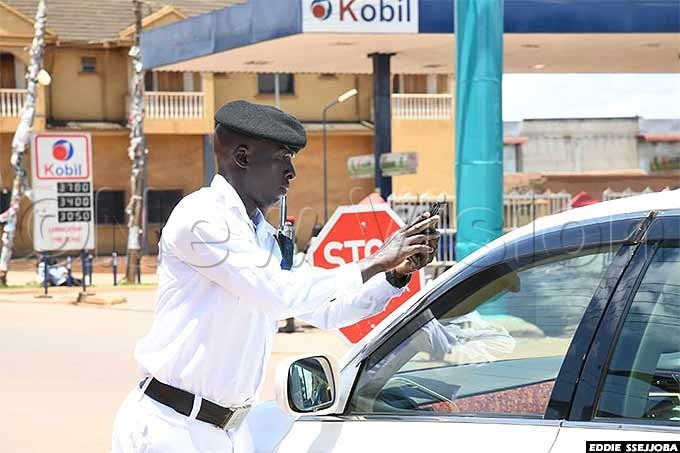
At Ndeeba along the Masaka Road, the military and traffic police erected a roadblock to check whether each vehicle had a travel document or sticker and whether the documents were genuine. Traffic police were seen using their phones to scan the stickers.
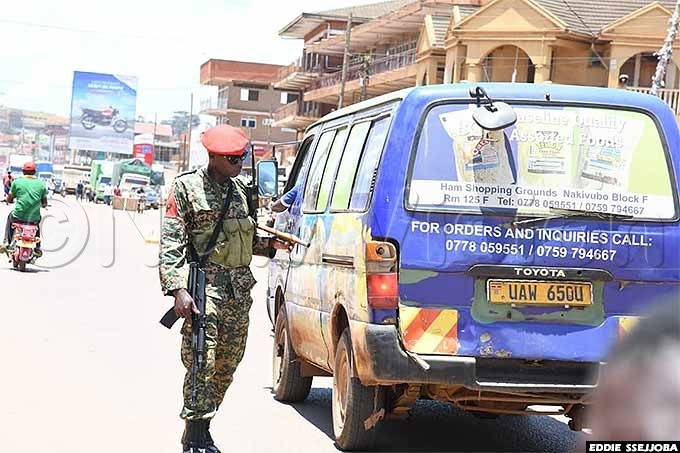
The military police were seen giving extra attention to army people especially those driving private cars.